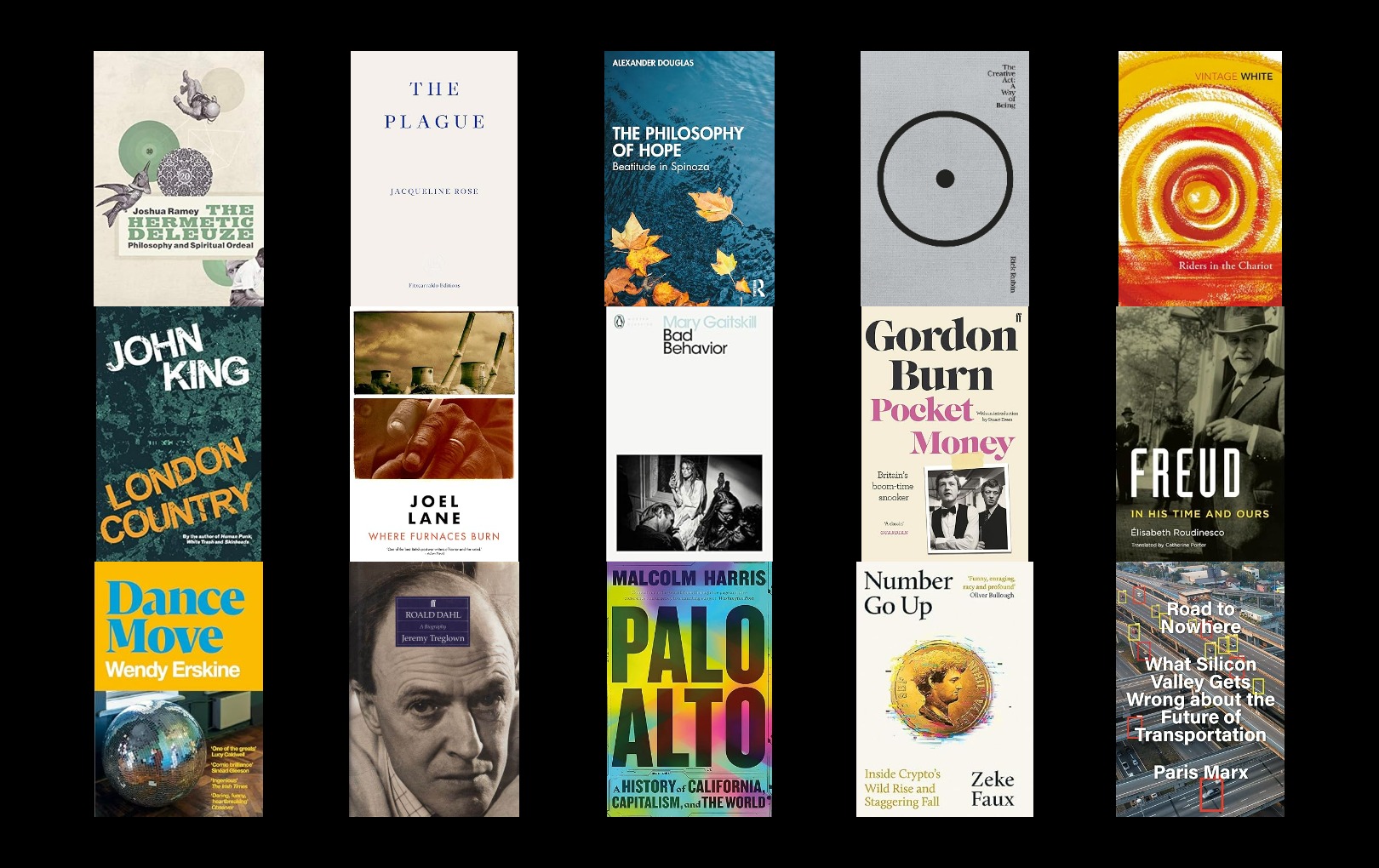
Brad Evans: I Know I Will Never Write a Better Book
If the measure of writing is to get as close as we can to the truth of existence, I know I will never write a
This is the edited text of a talk given by Alex Niven at the NewBridge Project, Newcastle-upon-Tyne last week.
I’d like to start with a quotation from Dubliners, James Joyce’s first work of fiction, published almost exactly a hundred years ago. It was written largely in the Edwardian period, in the last days of British colonial rule over Ireland; that is, on the eve of the Irish Revolution:
That night the city wore the mask of a capital
Dubliners is a collection of realist—some might say magic realist—stories about residents of Dublin in which almost all of the characters feel disillusioned or constricted in some way; paralysis is a word that echoes throughout the book. But Dubliners isn’t, in the end, a pessimistic work. Even though the characters in Joyce’s stories are paralysed on the one hand, there is also a sense that something is about to happen, a sense that Dublin is about to break free and come into its own. Within five years of the publication of Joyce’s book, Dublin was indeed the capital of a newly independent nation. And, a century later, it still is.
This is not to say that capitals and nations don’t bring with them their own kinds of problems and responsibilities and limitations. But I think something in the music of that quotation does help to emphasise the fact that radical change in the
circumstances of a city, a country, the world, can happen very quickly. Revolutions are possible. Political campaigns are not futile. Big collective projects can succeed. At certain moments in our history, we are able to take significant steps towards the creation of the ideal city, channelling utopian ideals, even if utopia is by definition unrealisable.
I wanted to begin with the example of Dubliners and this quotation, not necessarily because I think we’re on the eve of a revolution, but because there does seem to be something about the present moment that is analogous with the world, and perhaps the British Isles in particular, a hundred years ago. Like then—the post-Victorian, pre-WWI period—there’s a sense that the previous era is coming to an end, but that it’s coming to an end slowly. The political consensus of the last 30 or 40 years, let’s call it neoliberalism for the sake of argument, is splintering apart. But it hasn’t yet disintegrated. Lots of you are no doubt familiar with the philosopher Slavoj Zizek’s descripton of the post-2008 global economy as a bit like the train in a Road Runner cartoon—it careers over the precipice but carries on for an implausibly long time, before suddenly plunging vertically into the valley below.
Right now we’re probably still in the phase when the train is gliding along in the air on its horizontal trajectory. In the immediate post-2008 period—the years either side of 2010—there was a flurry of populist insurrectionary activity, which peaked in 2011 with the Occupy demonstrations, the Arab Spring, the fallout from the Murdoch phone-tapping scandal, the London riots, and so on. But afterwards, things settled down remarkably quickly. The Occupy movement seemed to quietly pack up its bags, and in Britain at least, the fervour of 2011 was replaced with the torpor of a country drifting inexorably to the right under the auspices of a Conservative-led coalition government.
But now, ironically, in the wake of an outright Conservative victory, and perhaps compounded by more momentous events further afield, the mood is changing again fairly rapidly. Tomorrow Jeremy Corbyn will be elected leader of the British Labour Party, which at the very least, will signal the end of the cross-party neoliberal consensus in the UK parliament, and might just possibly lead to a further radicalisation of the British political landscape. This hot on the heels of the Sun, a notoriously right-wing, habitually racist newspaper, publishing a headline last week in support of the Syrian refugees. Even if the Sun quickly managed to grotesquely torque the death of Aylan Kurdi later in the week so that it became a justification for air strikes on Syria, this was a major about-turn. The writer Mark Fisher was surely right when he argued that the Sun’s support for the refugees was a clear sign or at least premonition of the death of what Fisher calls ‘capitalist realism’, the pervasive, deeply embedded belief that there is no alternative to neoliberal capitalism. Throughout the west, the conservative establishment is everywhere on the defensive, and is daily being forced to reconsider, change its tone, express uncertainty, shift its feet uncomfortably.
We are clearly, then, in the midst of a moment of change—if perhaps not of outright crisis. But I think the important thing to emphasise about this particular moment is that it’s qualitatively different from the sort of energetic populist mood witnessed, for example, in 2011. And perhaps indeed it’s a very different moment from much of what we’ve come to be familiar with politically over the last half century. By that I mean that, while in 2011 and in countless previous years the protests seemed to be scattered, emotive, spasmodic, energetic, but usually relatively short in length and often directionless (the London riots in particular), the changes we are seeing right now seem to be of a more structural kind—they have an air of seriousness, of deliberation, of constructiveness. The spirit of change in the air right now seems like it might just amount to permanent shifts in the way we are governed and in the way political debates are conducted.
It’s probably the case that the leftist experiment in Greece is now in tatters, with the socialist government led by Syriza looking increasingly beleaguered and at risk of defeat at the upcoming Greek elections. Nevertheless, we cannot underestimate the huge significance earlier this year of a radical leftist European government achieving a solid democratic mandate, and then coming very close to undermining the entire economic grounding of the European Union. This is a very different occurrence from Occupy, for instance.
In the British context, the election of Corbyn will be a moment of genuine organisational breakthrough for the Left. Even if things go awry for Corbyn’s project, as they are bound to in some shape or form, there is no mistaking that his victory represents a kind of generational handover. The mistake of the elder statesmen and women at the Guardian was to view the Corbyn surge as a rehash of the 80s. More fool them, because it actually represents the coming of age of a much younger leftist demographic—the opponents of neoliberalism who have been filing away at the gaps in the brickwork for the last decade: radical theorists who subsisted for many years on the fringes of the internet, journalists like Owen Jones who have been gradually building leftist influence and hegemony in the mainstream media, the new feminists and LGBT campaigners looking for an outlet for their struggles, ordinary people angry about housing or militarism, or having to pay 30 grand for an undergraduate degree, or the fact that their once-proud town on the edge of the world’s 4th richest country is suddenly full of food banks.
These people have been surging for years. For these people, and perhaps for many people in this room, the time is now. A window of opportunity is opening for us to build, rather than merely dismantle, to construct rather than merely deconstruct. As William Blake once said:
I must create a system or be enslaved by another man’s
The current mood of radicalism is distinguished by its emphasis on systematic thinking and acting, which is something quite different from the emotive but ultimately ephemeral radicalism of 2011.
On the eve of a Corbyn victory, I would suggest that we need to start thinking in a systematic, ambitious way about how a radical political campaign might affect and improve every aspect of the city we live in, and how this might be joined up with a systematic programme for reform in the rest of Britain, Europe, the world. What would the Corbynite city look like? I don’t pretend to know, but I think the current moment is a moment for a kind of systematic idealism, for large-scale, intellectually ambitious thinking about the way society is constructed rather than the small-scale rebellions and countercultural deconstructionism that has dominated the left over the last three decades, and arguably merely offered a mirror-image to neoliberalism’s belief that states, councils, funding bodies, universities and unions should be disempowered until they disappear.
Corbyn has created a rupture in the ground we know, signalling that society might suddenly begin to change, and change fast. In five years time, our capital might be anywhere.

If the measure of writing is to get as close as we can to the truth of existence, I know I will never write a

To accompany his latest piece with Tariq Goddard in The Quietus on True Detective Season 4 and the legacy of In The Dust of This Planet, Eugene

As another turbulent year draws to a close, the Repeater team put forward their favourite reads for the festive season. Publisher, Editor, and Author Tariq

If the measure of writing is to get as close as we can to the truth of existence, I know I will never write a

To accompany his latest piece with Tariq Goddard in The Quietus on True Detective Season 4 and the legacy of In The Dust of This Planet, Eugene

As another turbulent year draws to a close, the Repeater team put forward their favourite reads for the festive season. Publisher, Editor, and Author Tariq
